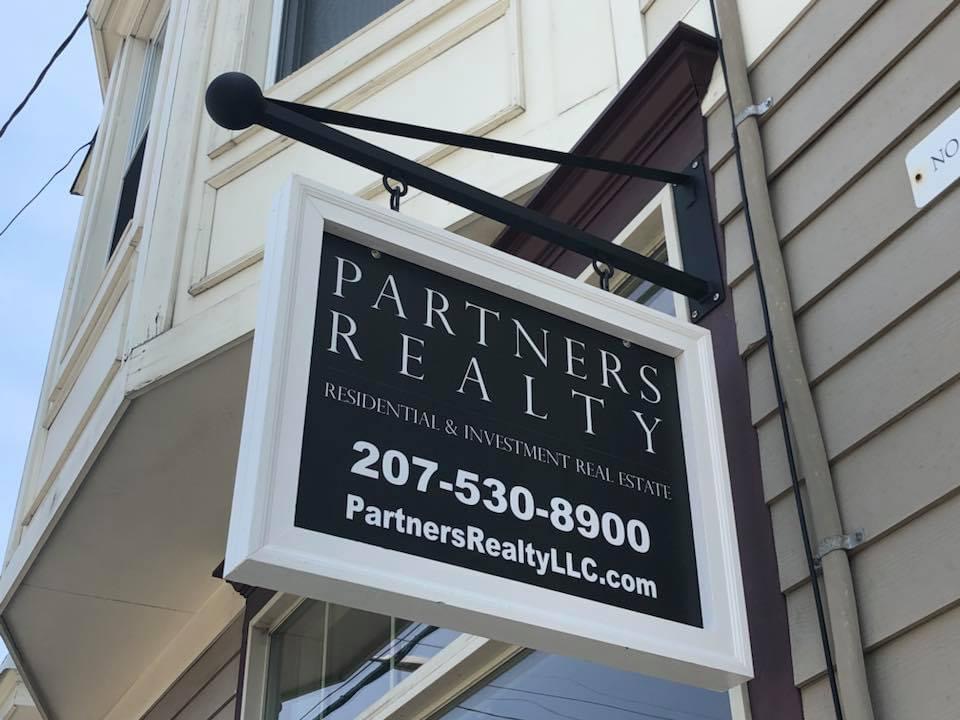 The Bottom Line
The Bottom Line
When you sell your home yourself— also known as "for sale by owner” (FSBO)— it may seem like a great way to save thousands of dollars. After all, the standard real estate agent’s commission is 5% to 6%—that’s $12,500 to $15,000 on a $250,000 home.1 Given the size of this fee, you may think that acting as your own seller’s agent will surely be worth the savings. Here are eight reasons why you may want to reconsider.
KEY TAKEAWAYS
You might be tempted to avoid a real estate agent, save the commission, and just sell your home yourself—also known as “for sale by owner” (FSBO).
While tempting, in most cases the risks of going it alone likely outweigh the benefits.
Risks include having few potential buyers (let alone qualified buyers), making emotional decisions, not knowing how to negotiate properly, and not having enough free time to dedicate to finding a buyer.
One of the biggest risks of FSBO is not having the experience or expertise to navigate all of the legal and regulatory requirements that come with selling a home.
1. Realtors May Not Show a "For Sale By Owner" Home
In an FSBO deal, the buyer’s agent knows there won’t be a professional colleague on the other end of the transaction. Even if a client insists on seeing your home, the agent might discourage making an offer, citing the hassles and risks of trying to close the deal without a professional representing the seller—and without a guaranteed commission.
“There are only two reasons why I show an FSBO: There is no other inventory available or the price is ridiculously low,” says Bruce Ailion, a realtor with RE/MAX Town & Country in Alpharetta, Ga., near Atlanta. Experienced brokers have generally been burned by an FSBO transaction in which the seller did not pay the full agreed commission—or any commission at all—to the agent who brought the buyer, says Ailion. “FSBO sellers are viewed as unrealistic, unreasonable, and difficult sellers whom professional realtors have rejected,” he says.
Still, there are buyers’ agents who will show your property under the right conditions. That may mean signing an agreement with the agent that states the percentage fee that you, as the seller, will pay the agent. (The agent may specify a 6% commission, trying to nab both the buyer’s and seller’s side. Instead, negotiate the total commission to a more reasonable 2% to 3%.) An agreement should also clarify that the agent is only working on behalf of the buyer. It may also state that as the buyer’s agent, the real estate agent has a duty to disclose to the client all the information the seller provides to them, such as the need to sell by a certain date.
If you want to be taken seriously by sellers’ agents, get the best price, and make sure you don’t miss any key steps in the process—or risk a lawsuit—it’s better to use a real estate agent than to try to sell your home yourself.
2. Agents Avoid Emotional Sales
Selling your home is typically an emotional process. Having an agent keeps you one step removed and makes you less likely to make stupid mistakes, such as overpricing your home, refusing to counter a low offer because you’re offended, or giving in too easily when you have a deadline for selling. “A realtor can follow up without communicating a sense of eagerness or desperation; following up is their job,” says Ailion. “When a seller repeatedly checks, it signals, rightly or wrongly, the willingness to accept a lower price.”
If you forgo an agent, you’ll also have to deal directly with rejection every time a buyer’s agent tells you that the client isn’t interested. “As the homeowner, it can be quite upsetting hearing some of the comments that are made by buyers and, oftentimes, their agents,” says David Kean, a realtor with Beverly & Co. in Beverly Hills, Calif.
An agent can take the sting out of the rejection and put a positive spin on any negative feedback. “It is more difficult for [the seller] to keep their emotions out of the sale, because there’s no third party to bounce anything off of,” says real estate broker Jesse Gonzalez, president and founder of North Bay Capital in Santa Rosa, Calif. “For instance, if the property sits on the market, the homeowner doesn’t know the reason the home is not selling."
“The emotions will always be there for the seller,” Gonzalez adds, “but constructive criticism can be easier to digest for the seller when it comes from a broker who is on their side, trying to get the best for them.”
3. Real Estate Is a Full-Time Job
Can you rush home from work every time someone wants to see your home? Can you excuse yourself from a meeting every time your phone rings with a potential buyer? At the end of a long workday, do you have the energy to take advantage of every possible opportunity to market your home? Are you an expert in marketing homes?
Do you have any experience doing so? Your answer to all of these questions is probably “no.” An agent’s answer to all of these questions is “yes.” In addition, by going through an agent, you’ll get a lockbox for your front door that allows agents to show your home even when you aren’t available.
4. Agents Access Large Networks
Yes, you can list your home yourself on Zillow, Redfin, Craigslist, and even the multiple listing service (MLS) that agents use. But will that be enough? Even if you have a large personal or professional network, those people will likely have little interest in spreading the word that your house is for sale. You don’t have relationships with clients, other agents, or a real estate agency to bring the largest pool of potential buyers to your home. A smaller pool of potential buyers means less demand for your property, which can translate into waiting longer to sell your home and possibly not getting as much money as your house is worth.
“A good real estate agent should have a Rolodex of names and contact information, so they can quickly spread the word about the property they just listed,” says real estate broker Pej Barlavi, owner and CEO of Barlavi Realty in New York City. “I have a distribution list of over 3,500 contacts that get an email blast from me within 48 hours that we list a property. Then I start to market the property in every available website, MLS, and site for real estate to keep the momentum and [to keep] showing consistently.”
5. Weeding Out Unqualified Buyers
An agent can find out whether someone who wants to view your house is really a qualified buyer or just a dreamer or curious neighbor. It’s a lot of work and a major interruption every time you have to put your life on hold, make your house look perfect, and show your home. You want to limit those hassles to the showings most likely to result in a sale.
“Realtors are trained to ask qualifying questions to determine the seriousness, qualification, and motivation of a prospect,” says Ailion. Realtors are also trained to ask closing questions about how long buyers have been looking, whether they’ve seen any other homes that would work for their needs, if they are paying cash or have been prequalified, what schools they are looking for, and so on. They can move a qualified and motivated person to the point of purchase. FSBO sellers lack this training and skill set, he says.
It’s also awkward for buyers to have the seller present, rather than the seller’s agent, when they’re touring the home. “When showing a house, the owner should never be present,” says Kean. “Nothing makes a potential buyer more uncomfortable than the current owner being in the house. When a seller is present, most buyers will rush through a house and won’t notice or remember much about what they saw.”
6. Price Negotiations Take Skill
Even if you have sales experience, you don’t have specialized experience negotiating a home sale. The buyer’s agent does, so they are more likely to succeed in the negotiation, meaning less money in your pocket. “An experienced selling agent may have negotiated hundreds of home purchases,” says Kean. “We know all the games, the warning signs of a nervous or disingenuous buyer.”
Not only are you inexperienced; you’re also likely to be emotional about the process, and—without your own agent to point out when you’re being irrational—you’re more likely to make poor decisions. According to Kean, instead of an offended seller making an emotionally charged, inappropriate response to a buyer, an agent will say something more professional, such as, “The seller has declined your initial request but has made the following counteroffer.”
Sellers who go solo also typically aren’t familiar with local customs or market conditions. “Agents know the pulse of the market and what’s driving demand, which gives them an advantage by knowing what terms are worth negotiating for and which are worth letting the other party win,” says Rob McGarty, owner and designated broker with Bushwick Real Estate in Seattle.
Furthermore, says Gonzalez, agents know the local customs for selling a home, such as whether the buyer or the seller typically pays fees such as transfer taxes and closing costs.
7. You Ignore Your Home’s Flaws
Agents are experts in what makes homes sell. They can walk through your home with you and point out changes you need to make to attract buyers and get the best offers. They can see flaws you’re oblivious to because you see them every day—or because you simply don’t view them as flaws. They can also help you determine which feedback from potential buyers you should act on after you put your home on the market to improve its chances of selling.
“Anyone who’s determined to sell their own home should hire an interior designer or property stager to assess the current condition and market appeal of the home,” Kean says. “All sellers need to hire a professional cleaning service to give a home a deep cleaning before putting it on the market. A good cleaning will help remove any distinct odors, such as pets, that the inhabitants can’t smell, since they live with them every day.”
8. Exposure to Legal Risks
A lot of legal paperwork is involved in a home sale, and it needs to be completed correctly by an expert. One of the most important items is the seller’s disclosures. “A seller of real estate has an affirmative duty to disclose any fact that materially affects the value or desirability of the property,” says attorney Matthew Ryan Reischer, founder and CEO of LegalAdvice.com. A seller can be held liable for fraud, negligence, or breach of contract if they do not disclose properly. “The issue of whether a fact is material or not is generally established in the case law of the state in which you live,” says Reischer.
Unless you’re a real estate attorney, your agent probably knows more about disclosure laws than you do. If you fail to disclose a hazard, nuisance, or defect—and the buyer comes back to you after having moved in and found a problem—the buyer could sue you. Agents can make mistakes, too, but they have professional errors and omissions insurance to protect themselves and give the buyer recourse, so the buyer may not need to pursue the seller for damages.
The Bottom Line
It’s a tall task to learn how to sell your house without a realtor—and selling your home will likely be one of the biggest transactions of your life. You can try to do it alone to save money, but hiring an agent has many advantages. Agents can get broader exposure for your property, help you negotiate a better deal, dedicate more time to your sale, and prevent your emotions from sabotaging it. An agent brings expertise, which few FSBO sellers have, to a complex transaction with many potential financial and legal pitfalls.
8 Reasons to Choose a Real Estate Agent Over "For Sale By Owner"
Why it's worth getting a pro to sell your home
By AMY FONTINELLE
Reviewed by ERIC ESTEVEZ on August 26, 2021


 The Bottom Line
The Bottom Line
